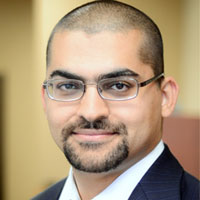Hair Transplant During Covid-19 Times
Starting from 2020, the Covid-19 pandemic has changed the way we live and how the world works in general. Of course, one of the most affected areas from pandemic was the healthcare industry. Since all priorities have changed and people have become more concerned about receiving healthcare besides the urgencies, medical cosmetics operations have almost stopped. Without a doubt hair transplant industry has been affected negatively because of social distance pressure, fear of clients, and mandatory lockdowns occasionally. Yet, people still need hair transplant operations and seek ways to get
hair transplant operations after vaccination.
In addition, recent research has revealed that hair loss is one of the long-term symptoms of Covid-19. Several patients report hair loss after they have recovered from the infection. Besides that, seasonal shedding contributes to a significant increase in the number of persons seeking hair transplantation and other forms of therapy for hair loss. Additionally, when the seasonal loss is factored in, the number of persons seeking hair transplants and treatment skyrockets dramatically.
While this was going on, hair transplantation operations that had been postponed owing to the COVID-19 pandemic began to be carried out as the situation became more stable and normalized. It is possible to replace lost or damaged hair with follicles or hairs obtained from the patient's body through a hair transplant operation. Hair transplantation, according to experts, may also boost one's self-esteem and confidence.
But is it really safe to get a hair transplant during the Covid-19 era?
Covid-19 Measures and Hair Transplant ClinicsWhen operating a hair transplantation clinic following Covid-19 guidelines, all rooms should be equipped with ultraviolet C lights that are efficient against the virus. In other words, while hair transplant operating rooms are among the most isolated environments from the virus, it is still necessary to adhere to the distance requirement, use hand disinfectants regularly, and pay close attention to mask precautions in order to reduce personal contact. So, you should review these conditions before choosing a hair transplant clinic during the pandemic.
Many hair plantation clinics are now offering telemedicine/telehealth consultations through Skype, FaceTime, Zoom, or WhatsApp, with video capabilities allowing you to demonstrate the state of your hair and scalp to your doctor during the session. The online assessment will not replace an in-person examination (and you will still require one once we've finished), but you will still be able to get a sense of whether or not you are a potential candidate for a hair transplant.
Best countries for hair transplant during Covid-19
In terms of affordable prices, high-quality service, communication skills, warmth, and hospitality, as well as the reputation and years of experience of plastic surgeons, clinics, and hospitals that provide
the best hair transplant surgeries in the world, Turkey can be considered the best country for hair transplantation surgery in the world. Furthermore, Turkey has made efforts to assure safe and healthy tourism, including immunization of all hotel and tourist employees and stringent regulation of hospital and clinic facilities. Turkey hair transplant packages include:
•
Pre-operative examination by the doctor, blood testing
•
PCR Test for Covid-19 precautions
•
Maximum number of grafts transplanted using the FUE technique
•
Post-operation gels and other aftercare goods
•
Ground transfers
Every year, thousands of individuals go to India for medical treatment such as
hair transplant and other cosmetic operations for its well-deserved reputation for providing excellent healthcare and significantly affordable prices. Because you will definitely get half prices than in US or large EU countries without any compromise on high-quality. When deciding which nation is the finest for a hair transplant, it's crucial to evaluate the accreditations and awards those clinics have received and see their reviews on online platforms.
Hair transplants are becoming increasingly popular in Thailand because the transplanted hair behaves similarly to real hair, giving your hair a more natural appearance. Follicular Unit Extraction (FUE) is the most often performed hair transplant surgery in Thailand and Asia in general (FUE). Follicular Unit Transplantation (FUT) and Regenera Activa Hair Restoration are two of the other ways used by the field of hair transplant in Thailand. Despite the fact that Thailand hair implant charges are greater than those in Turkey and India, the country is a popular destination for medical tourism, notably hair transplantation, from across the globe.
Posted in
Hair Transplant by:
Sang Ale
1/3/2022 | Hairfear
Frequently asked questions about hair transplant procedures
How much does a hair transplant cost?
Hair transplants can vary in price based off of the area in the world that you are interested in getting a hair transplant as well as the size of the area where you may need a hair transplant. Experienced doctors in the United States will often charge some of the highest prices for a hair transplant worldwide and this is why so many travelers make the move to other parts the world like Turkey, India, Thailand, Mexico...etc for their hair transplants.
Will a hair transplant hurt?
Although hair transplants may look like a particularly
unpleasant or painful experience is actually very little discomfort involved
with the surgery itself. Hair transplants are always done under an anesthetic so there's absolutely zero pain during the treatment itself. Many people actually relate the process as being very similar to going to the dentist for filling or root canal. Mild pain can persist over the course of postop treatment but he generally just resumes for a few days.
Who can deliver the best surgery?
It's usually best to consider working with surgeons who have and IAHRS certification or international alliance of hair restoration surgeons recognition. IAHRS can often deliver recommendations for the best surgeons in each particular area.
Is this scarring noticeable?
Any type of hair transplant will require the use of incisions throughout the scalp. There can also sometimes be a small scar from the donor area towards the back of the scalp. Asking to look at photos of the surgeon's previous work will help you to see roughly how bad the scarring could be. In most cases an experienced professional can limit the look of scarring and noticeable marks from the surgery.
How long does it take for the hair to grow?
In most cases hair growth will start within eight months and you can start to see a full effect from the hair transplant after a full year. The initial signs of growth can usually start between 3 to 4 months after the surgery.
Are the results permanent?
The hair follicles that are transplanted are generally the ones which are genetically resistant against the symptoms of baldness. As long as you receive hair loss treatment later in your life after the symptoms of balding have started to subside, you can have a better chance at permanent results.
While everyone know you've had surgery?
If you want to limit the chance that people may find out about your surgery it's important to give at least three weeks of healing as the surgical area will be affected and red just after surgery. After around a month of healing it can look far less noticeable. You could consider wearing a hat while time passes or opting for some extra time off if possible.
How long should I rest after surgery?
It's recommended to rest for at least a few days after surgery so that your body can recover. Trenton to over exert yourself and limit sexual activity, running in the gym for around 10 days after surgery.
Is it possible to lose more hair as a result of surgery?
There is always a chance of shock loss which happens when the hair is weak and miniaturizing after the surgery. As long as the surgeon is choosing the correct hair follicles and performing the surgery well it's possible to minimize the chance of this happening however.
Will I need another hair transplant?
The need for another transplant really depends on the individual. With a solid foundation surgery and working to potentially bolster results with drug therapy, you can improve the stability of the hair that was transplanted as well as prevent further loss. Getting a hair transplant early
on in your 20s or early on in life could lead to needing long-term transplants as hair loss can be progressive.







